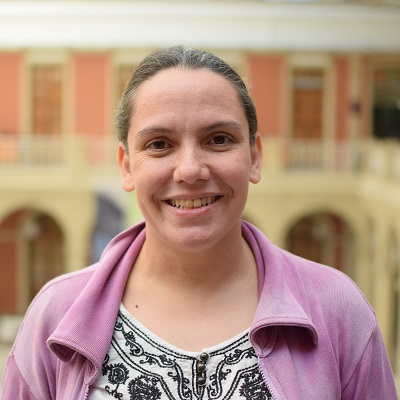All posts (Page 70 of 128)
As announced in our recent post about updates to our Software Peer Review system, all our package development, review and maintenance is available as an online book. Our goal is to update it approximately quarterly so it’s already time to present its second official version! You can read the changelog or this blog post to find out what’s new in our dev guide 0.2.0!
🔗
A more legit and accessible book
Let’s start with very exciting news, the dev guide now has a cover, designed by Oz Locke from Locke Creatives!
...NASA generates and provides heaps of data to the scientific community. Not all of it is looking out at the stars. Some of it is looking back at us here on Earth. NASA’s Earth science program observes, understands and models the Earth system1. We can use these data to discover how our Earth is changing, to better predict change, and to understand the consequences for life on Earth.
The Earth science program includes the Prediction of Worldwide Energy Resource (POWER) project, which was initiated to improve upon the current renewable energy data set and to create new data sets from new satellite systems. The POWER project targets three user communities: 1) Renewable Energy (SSE), 2) Sustainable Buildings (SB) and 3) Agroclimatology (AG)1 and covers 140+ different parameters.
...🔗
Introduction
Open Trade Statistics (OTS) was created with the intention to lower the barrier to working with international economic trade data. It includes a public API, a dashboard, and an R package for data retrieval.
The project started when I was affected by the fact that many Latin American Universities have limited or no access to the United Nations Commodity Trade Statistics Database (UN COMTRADE).
There are alternatives to COMTRADE, for example the Base Pour L’Analyse du Commerce International (BACI) constitutes an improvement over COMTRADE as it is constructed using the raw data and a method that reconciles the declarations of the exporter and the importer. The main problem with BACI is that you need UN COMTRADE institutional access to download their datasets.
...rOpenSci is one of the first organizations in the R community I ever interacted with, when I participated in the 2016 rOpenSci unconf. I have since reviewed several rOpenSci packages and been so happy to be connected to this community, but I have never submitted or maintained a package myself. All that changed when I heard the call for a new maintainer for the qualtRics package. “IT’S GO TIME,” I thought. 😎
Qualtrics is an online survey and data collection software platform. Qualtrics is used across many domains in both academia and industry for online surveys and research, including by me at my day job as a data scientist at Stack Overflow. While users can manually download survey responses from Qualtrics through a browser, importing this data into R is then cumbersome. The qualtRics R package implements the retrieval of survey data using the Qualtrics API and aims to reduce the pre-processing steps needed in analyzing such surveys. This package has been a huge help to me in my real day-to-day work, and I have been so grateful for the excellent work of the package’s original authors, including the previous maintainer Jasper Ginn. This package is currently the only package on CRAN that offers functionality like this for Qualtrics’ API, and is included in the official Qualtrics API documentation.
...Last month we released a new version of pdftools and a new companion package qpdf for working with pdf files in R. This release introduces the ability to perform pdf transformations, such as splitting and combining pages from multiple files. Moreover, the pdf_data() function which was introduced in pdftools 2.0 is now available on all major systems.
🔗
Split and Join PDF files
It is now possible to split, join, and compress pdf files with pdftools. For example the pdf_subset() function creates a new pdf file with a selection of the pages from the input file:




